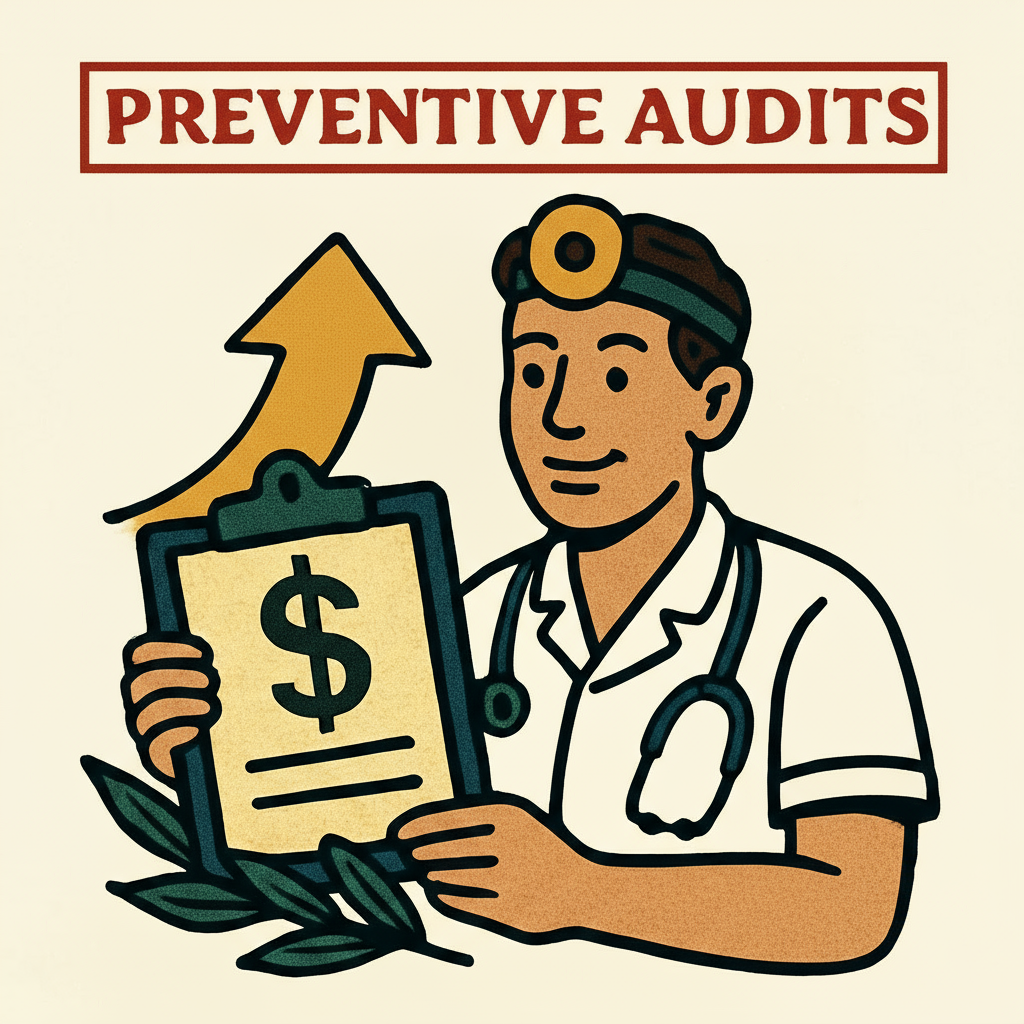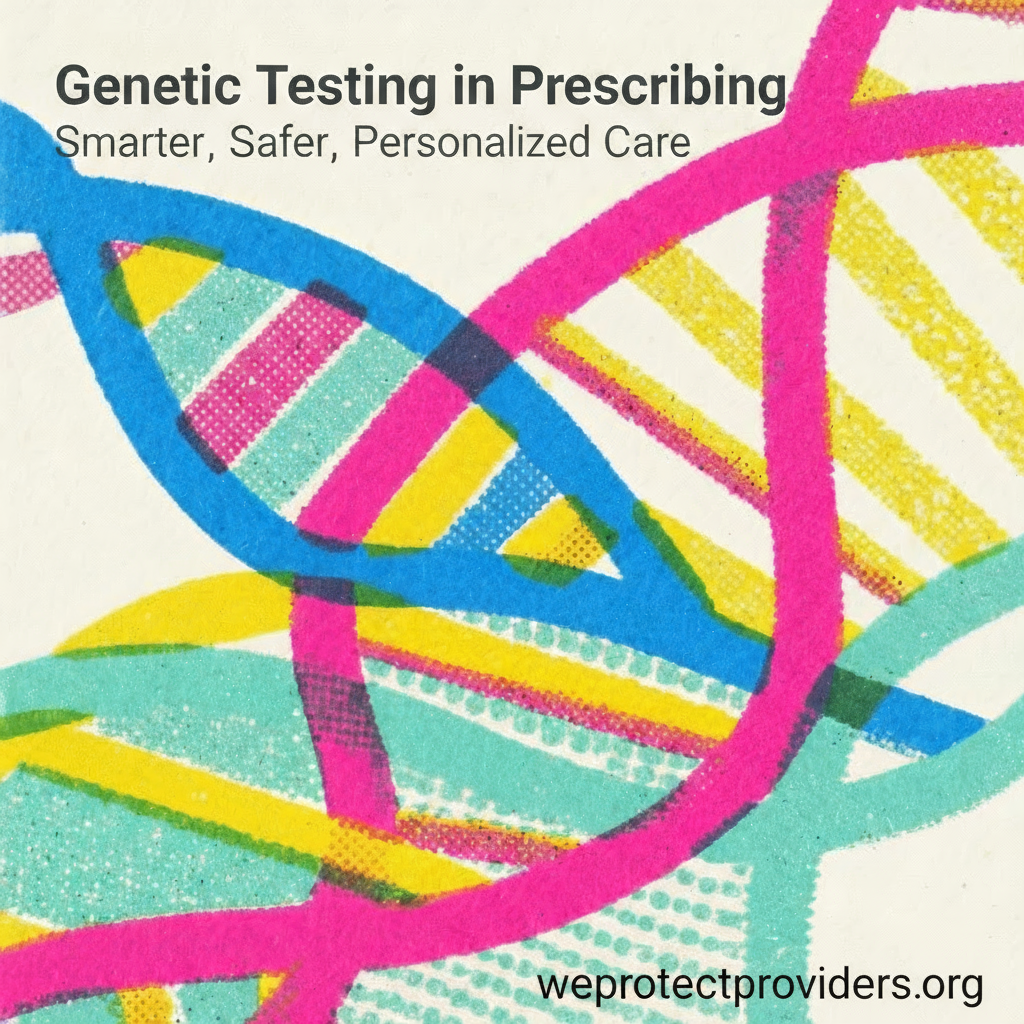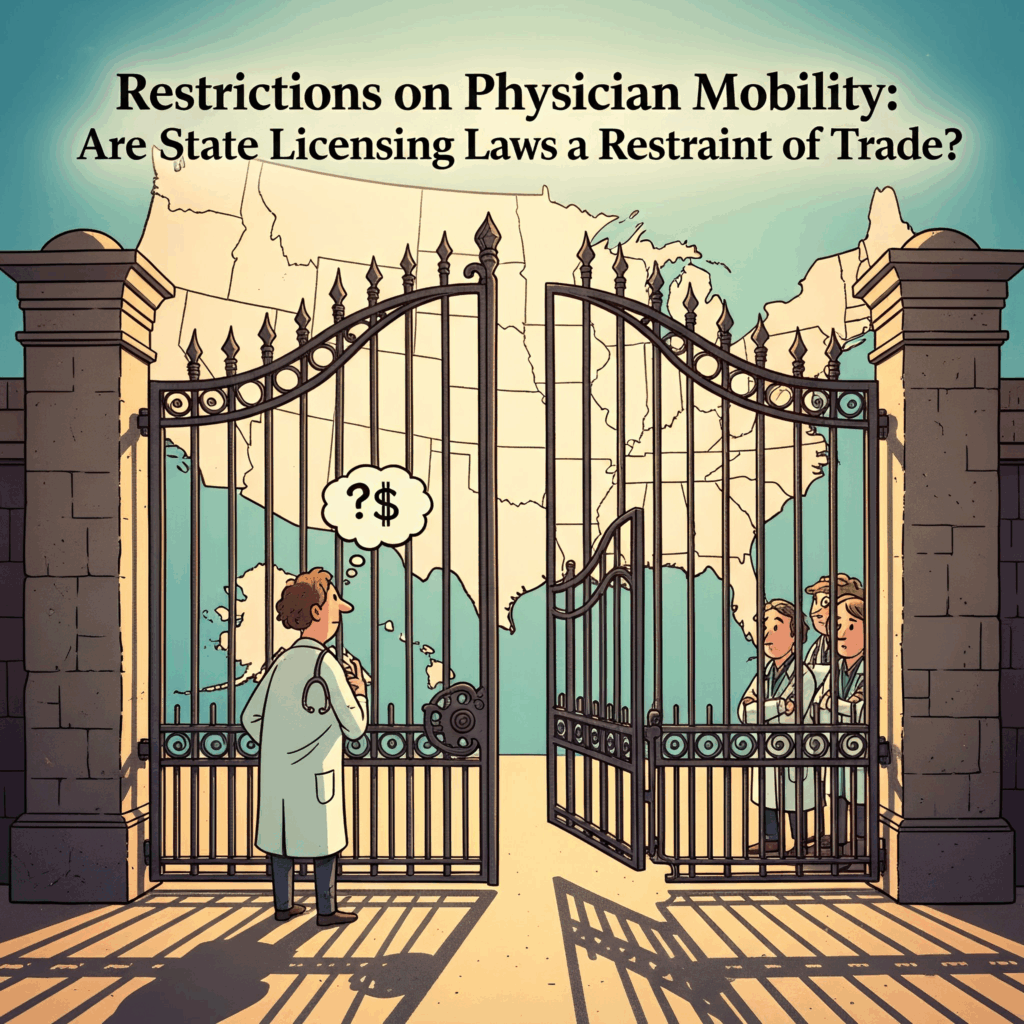
The ROI of Preventive Audits in Healthcare
Doug Jorgensen
March 17, 2025
Introduction: Catching Problems Before They Cost You
Most organizations audit only after a problem arises, but waiting is like waiting for a toothache before seeing a dentist—damage is already done. Preventive audits are an investment, saving money, protecting licenses, and strengthening reputations.
What Is a Preventive Audit?
A preventive audit is a proactive, internal examination of your healthcare organization’s clinical, operational, and financial practices. Unlike reactive audits, preventive audits occur before issues escalate, allowing providers to identify weaknesses, mitigate risks, and ensure adherence to best practices and legal requirements.
Scope includes:
- Billing and coding accuracy checks: Reviewing claims for proper documentation, coding (e.g., CPT, ICD-10, HCPCS), and billing according to payer contracts, federal (CMS), and state guidelines to avoid penalties and fraud accusations.
- Controlled substance prescribing reviews: Assessing compliance with regulations for prescribing, dispensing, and inventory management, including PMP checks and adherence to limits and security.
- Compliance with federal and state regulations: Adhering to laws like HIPAA, Stark Law, Anti-Kickback Statute, OSHA, CLIA, and state licensing. Regular audits ensure policies align with evolving regulations.
- Documentation and medical record audits: Evaluating completeness, legibility, timeliness, and medical necessity of patient chart entries to support billed codes and meet professional standards.
- Operational workflow evaluations: Assessing efficiency of processes like patient registration, scheduling, prior authorization, supply chain, HR, and IT security, improving outcomes and reducing administrative burden.
The Financial ROI
- Avoiding Steep Fines and Recoupments: Proactive audits prevent costly errors and compliance gaps before they lead to substantial financial penalties and demands for repayment from regulatory bodies or payers.
- Reducing Insurance Disputes and Accelerating Reimbursement: Accurate coding and thorough documentation from preventive audits reduce claim denials, minimize disputes, and speed up payments.
- Lowering Legal Costs and Mitigating Litigation Risk: Early identification and correction of compliance failures prevent escalation to legal challenges, reducing exposure to lawsuits, investigations, and associated fees.
- Protecting and Sustaining Vital Revenue Streams: Consistent adherence to regulations through audits safeguards access to federal healthcare programs (Medicare, Medicaid), protecting primary revenue sources and long-term financial stability.
The Operational ROI
Preventive audits optimize internal processes, improving patient care and staff well-being.
- Increased Efficiency: Audits pinpoint inefficiencies and bottlenecks in workflows, leading to streamlined care delivery, reduced staff burden, and faster operations (e.g., in patient registration or medication reconciliation).
- Standardized Practices: Audits promote consistent protocols for diagnosis, treatment, and documentation, minimizing care variations, improving patient safety, and simplifying training and collaboration.
- Better Resource Allocation: Audits provide insights into resource utilization, allowing for optimized deployment of equipment, technology, and personnel, reducing waste and maximizing investments.
The Risk Mitigation ROI
Preventive audits mitigate financial, legal, and reputational risks by proactively addressing vulnerabilities.
- Licensing Protection: Audits ensure ongoing compliance with licensing requirements, identifying deviations that could lead to disciplinary actions like board complaints or license suspension.
- Controlled Substance Oversight: Regular prescribing reviews ensure strict compliance with DEA and state regulations, reducing diversion risks, avoiding penalties, and enhancing patient safety.
- Data Security: HIPAA compliance checks within audits assess security measures, identify EHR vulnerabilities, and ensure staff adherence to privacy protocols, preventing breaches and penalties.
Why Organizations Skip Preventive Audits (and Why That’s a Mistake)
Many organizations avoid preventive audits due to misconceptions and ingrained behaviors, leading to greater risks and expenses.
- Misconceived Cost Concerns: Audits are seen as expenses, not investments. The upfront cost is negligible compared to potential fines, legal fees, or operational inefficiencies from unaddressed issues.
- The Pitfall of False Confidence: “We’ve never had a problem before” fosters complacency, ignoring dynamic regulations and evolving challenges, leaving organizations vulnerable.
- The Inevitable Fear of Discovery: Fear of uncovering deficiencies leads to ignored problems that grow in complexity and cost over time. Proactive discovery through audits allows for controlled resolution.
Optimal Strategies for Implementing Effective Preventive Audits
To leverage preventive audits effectively, adopt a structured approach:
- Integrate Annual Scheduling into the Organizational Calendar: Make audits a fundamental, scheduled part of the year for consistent oversight and continuous improvement.
- Leverage the Objectivity of an External Reviewer: Engage an independent, external firm for unbiased assessment, specialized expertise, and identification of subtle discrepancies.
- Prioritize Swift Action on All Findings: Immediately develop and implement a corrective action plan with specific steps, responsibilities, and deadlines to prevent issues from festering.
- Develop Staff Training Programs Based on Audit Insights: Translate audit findings into targeted training to address knowledge gaps, improve competency, and foster a proactive approach to quality and safety.
Final Thoughts: Prevention Is Always Cheaper Than Recovery
Every organization will be audited at some point—it’s not a question of if, but when.
The choice is whether that audit is one you control or one you’re reacting to under pressure.
In healthcare, the ROI of preventive audits is measured not just in dollars saved, but in crises avoided.
About the Author
Douglas J. Jorgensen, DO, CPC, FAAO, FACOFP
Dr. Doug is a physician, consultant, and national educator on healthcare policy, regulatory compliance, and risk mitigation. He has conducted hundreds of audits nationwide, helping organizations stay ahead of regulatory scrutiny.


